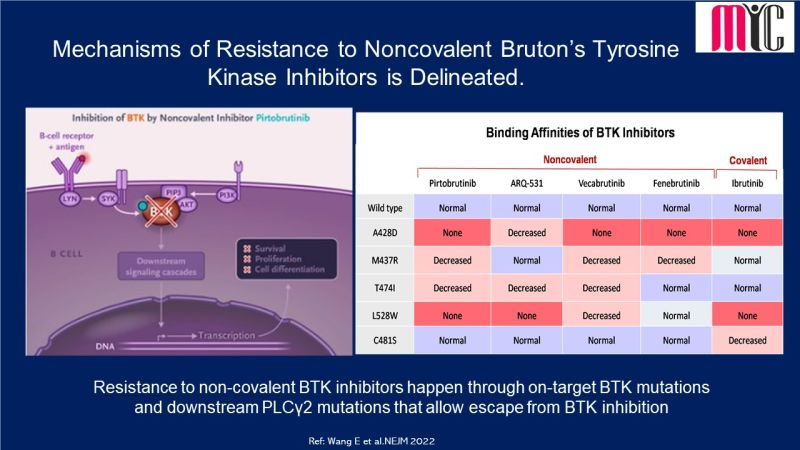
11 Mar Mechanisms of resistance to noncovalent Bruton Tyrosine Kinase inhibitors is delineated
The mechanisms of resistance to noncovalent (reversible) BTK inhibitors was not fully known. Genomic analyses of pre and post-treatment samples from patients with CLL treated with the non-covalent BTK inhibitor pirtobrutinib showed that resistance to noncovalent BTK inhibitors arose through on-target BTK mutations and downstream PLCγ2 mutations. This data suggests new mechanisms of genomic escape from established covalent and novel noncovalent BTK inhibitors. (Ref: Wang E et al.NEJM, 2022)
https://www.linkedin.com/feed/update/urn:li:activity:6907962121779597312




Sorry, the comment form is closed at this time.